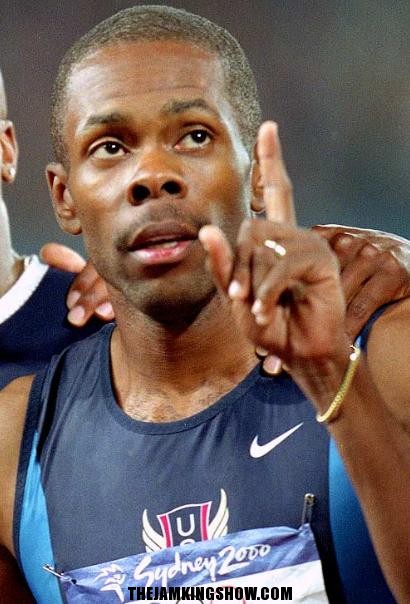The revelation of Olympic Gold Medalist Antonio Pettigrew’s admission regarding his involvement in doping has reverberated through the corridors of sports ethics and moral integrity. Are we, as a society, equipped to discern the fine line between ambition and ethical transgressions in competitive athletics? It’s an inquiry that merits profound deliberation. Pettigrew’s confession is not merely a personal reckoning; it unveils the pervasive culture of performance enhancement in sports that straddles the limits of human capability and ethical boundaries.
The allure of Olympic gold is intoxicating, a siren song to athletes worldwide. The accolades, the glory, the eternal legacy carved in the annals of athletic achievement—who wouldn’t be tempted? Yet, as Pettigrew candidly acknowledged, this tantalizing dream can lead individuals down a dark path. When ambition eclipses integrity, we must question our values, not just as fans, but as a community that venerates athleticism. Pettigrew’s admission challenges us: how far are we willing to stretch the limits of human potential, and at what cost?
Pettigrew’s journey to the pinnacle of track and field was marked by exceptional talent, hard work, and a relentless drive. However, the revelation that he used performance-enhancing substances raises unsettling queries about the suffocating pressures athletes face. The sporting world cradles a dangerous paradox; it celebrates athletes for their physical prowess while simultaneously engendering an environment ripe for ethical compromise. It’s a milieu in which victory often eclipses virtue. If the ethos of sport is to inspire fair competition and represent the pinnacle of human ability, why then does this specter of doping persist?
At the heart of this discourse lies a challenge: can we, as a sporting community, redefine the parameters of success? When an athlete like Pettigrew admits to doping, it not only tarnishes his legacy but also casts a shadow on every athlete who has ever competed with integrity. It implicates the institutions that govern sports, those bastions of virtue that should safeguard against such ethical erosion. The stories of triumph and sweat turn dubious, viewed through the lens of a tainted victory. So, what must be done to realign our compass towards honoring true athleticism instead of manufactured triumph?
The undeniable pressure to excel is a chronic affliction in the realm of sports. Athletes are often beset with expectations that they transcend the pinnacle of human capability, pressing them into uncharted territories of enhancement. It’s a delicate dance between ambition and ethicality that leaves little room for hesitation. Yet, Pettigrew’s courageous declaration beckons us to rethink this trajectory. It implores aspiring athletes to weigh their dreams against the burden of accountability, to embrace the journey rather than merely the destination.
Moreover, this discussion opens up another essential dimension: the role of coaches, sponsors, and institutional structures that nurture these aspirations. If an athlete is caught in a web of unethical practices, do we not share some culpability? Coaches who advocate for peak performance often cultivate a win-at-all-costs mentality. This toxic culture exacerbates the dilemma. Instituting stringent accountability models could serve as a panacea. Beyond punitive measures, there lies an urgent need for a cultural shift within teams and organizations that prioritizes ethical standards over mere victories.
As we probe Pettigrew’s story, it becomes evident that it’s symptomatic of a larger malaise in sports. We must engage in a robust conversation about the ideals of athleticism and redefine what it means to be a champion. Can we elevate our standards and foster environments that eschew deceit and cultivate genuine talent? The response to this question must be communal, a covenant between athletes, coaches, and fans alike. There’s an intrinsic nobility in striving for excellence; the true champions are those who honor that journey.
Let us not ignore the impact of societal expectations on the athlete’s psyche. The relentless pursuit of greatness can lead to devastating consequences, fueling despair, and profound mental health struggles. Pettigrew’s story does not merely end with his admission of guilt; it thrusts into our consciousness the narrative of redemption and the arduous path to reclaiming integrity. Perhaps we should celebrate his bravery to confront his past rather than cast him aside as an example of failure. The introspection that follows can catalyze pivotal reforms in how we perceive athletic achievements.
In conclusion, Antonio Pettigrew’s confession serves as a rallying cry for change—a call to challenge and redefine success in athletics. It is an opportunity for introspection and transformation within the sporting community. If our collective journey is to champion true excellence, fostering a culture of honesty and integrity must take precedence. As fans and supporters, we have the power to demand a paradigm that honors human limitations while celebrating the tenacity and spirit of competition. Are we prepared to confront this challenge, to unearth a future where triumph is synonymous with unwavering ethics, and where the true essence of sport shines undimmed by shadowy compromises? The time has come to reshape our narrative and emerge resolutely towards a horizon of integrity.
